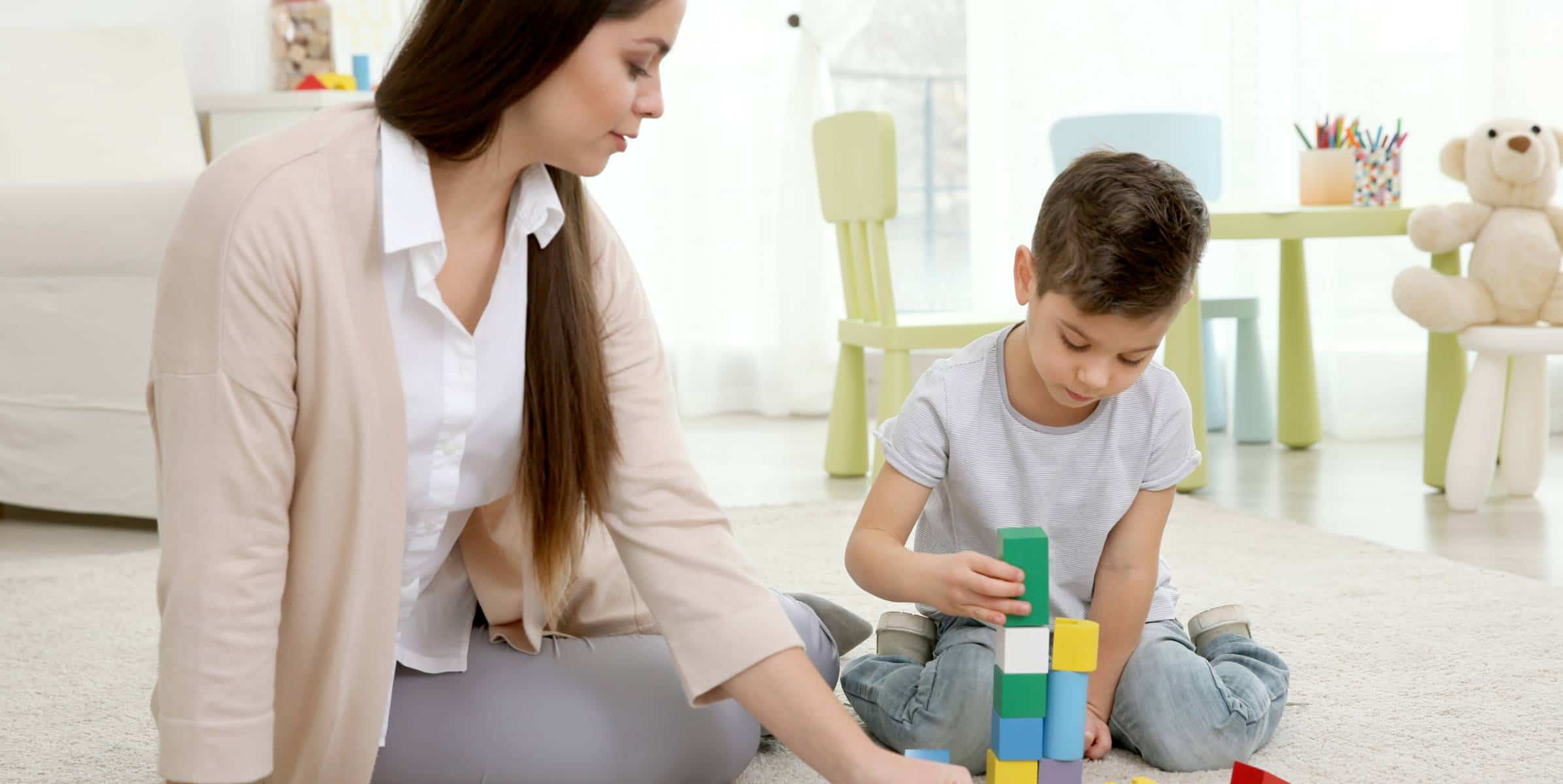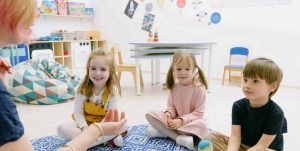As Applied Behavioral Analysis (ABA) gains more attention from families with children with Autism, some families are not sure which type of support will be best for their child; in-home or center-based.
Each service location has its unique benefits and limitations.
In-home-based services are great for children looking to build their functional and daily living skills, while center-based services offer more opportunities to engage in social behaviors with similarly aged peers among other skills.
Here are some of the things you can expect from center-based services:
Developing and Improving Play Skills
We strive to have similar-aged children in the clinic; typically, we have younger children at the clinic in the morning and daytime while older children attend after school.
Having children of similar ages allows technicians to model pretend play, turn-taking, sharing toys, following the rules of games, and supporting children in their development of playing with peers.
For our older children, technicians facilitate age-appropriate crafts and games that require following simple instructions, turn-taking, and communication skills.
The skills we teach will be practiced often with high amounts of repetition to better prepare children for various environments, such as school. The more natural the skill becomes, the more likely children are to use it independently.
Group Activities
Throughout the day, we have a schedule tailored to keep children engaged with their session through circle time, common meal times, story times, arts and crafts, sensory play, and movement breaks.
During circle time and group times, children practice taking turns, waiting, and participating in preferred and non-preferred activities. Group settings also foster opportunities to choose songs and stories to share with their peers.
Common meal times, story times, arts and crafts, sensory play, and movement breaks allow children many opportunities to work on social skills. During each of these activities, children are prompted to engage in conversation with their peers, join a peer’s activity, or complete the activity close to their peer, also known as parallel play.
Social Skills Groups
In the late afternoon and evening, the center offers a social skills group. The social skills group focuses on building conversational skills, self-regulation skills, role-playing safety skills, functional daily living skills, and many other skills to help children to become more independent.
Improving conversational skills allows your child to become more independent in various settings. During the social skills group, we work to develop conversational skills such as introducing ourselves to people we may not know, how to end a conversation, what behaviors are appropriate for various social situations, and other conversational skills.
Prioritizing self-regulation practice is a skill that all children benefit from, no matter their age. During the social skills group, we practice identifying emotions in self, then practice identifying emotions in others. Once the child has become fluent in identifying emotions in self and others, they begin to practice coping strategies such as deep breathing, counting, exercise, listening to music, and many more.
Other skills discussed and practiced during the social skills group include:
- Self-control
- Self-advocacy
- Self-management
- Other skills promoting independence
For each session, your child will be paired with an ABA-trained technician. Having one technician dedicated to your child during this time allows for specialized programming, high repetition of skills, behavior reduction, skill acquisition, and ensured safety.
Some activities that technicians and your child will complete during this time will be pre-academic activities, communication practice, increasing waiting time, practicing leisure skills, and many other targets specialized to your child’s needs.
Technicians take data throughout the session on each program, including behaviors that are to be increased and/or decreased. This data is analyzed by your child’s Board Certified Behavioral Analyst (BCBA) to ensure that they are making progress and constantly being challenged.
Center-based services offer a wide range of skill development for children of all ages and abilities. Our center is a child-friendly environment with secure exits. When looking at which supports are best for your child, consider a center-based approach to support your child. Contact us and schedule a free consultation today!








